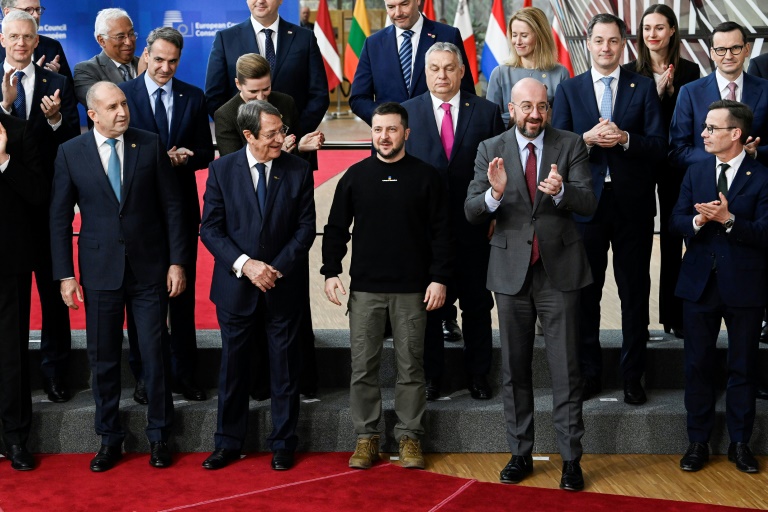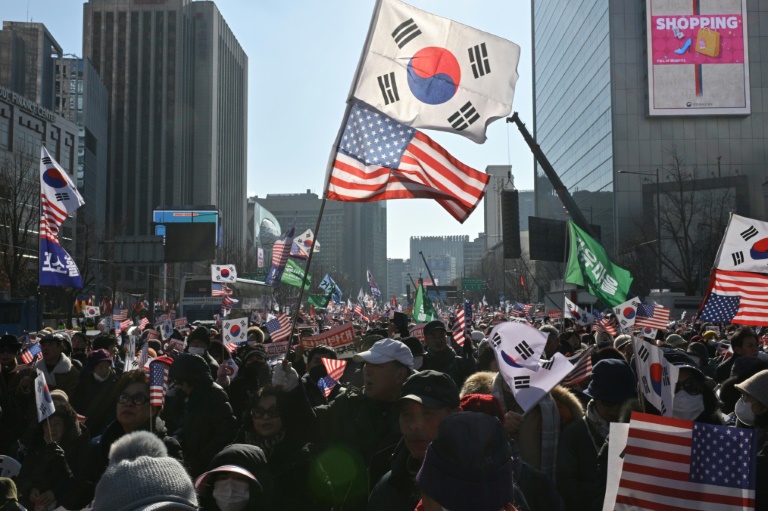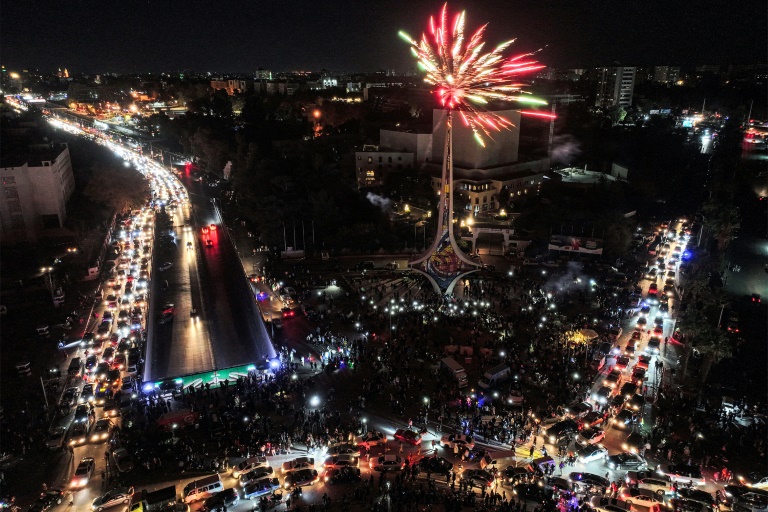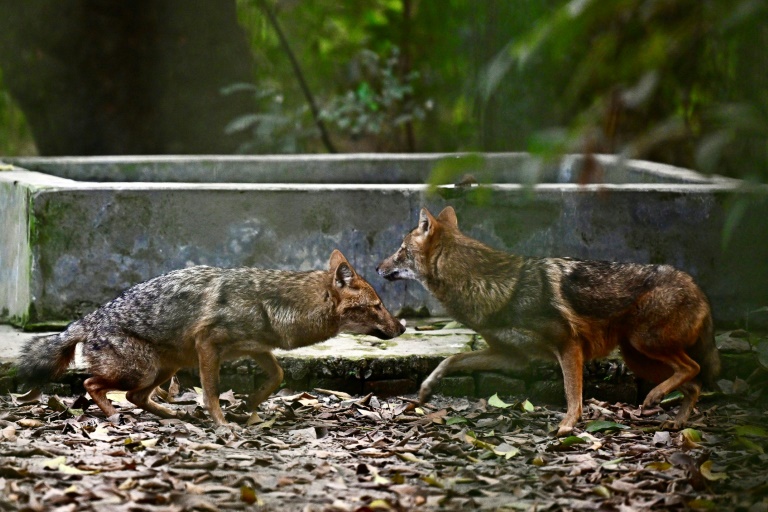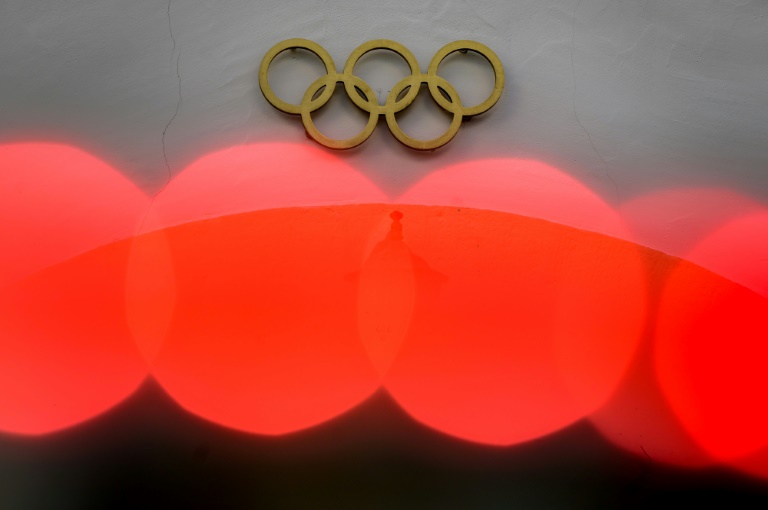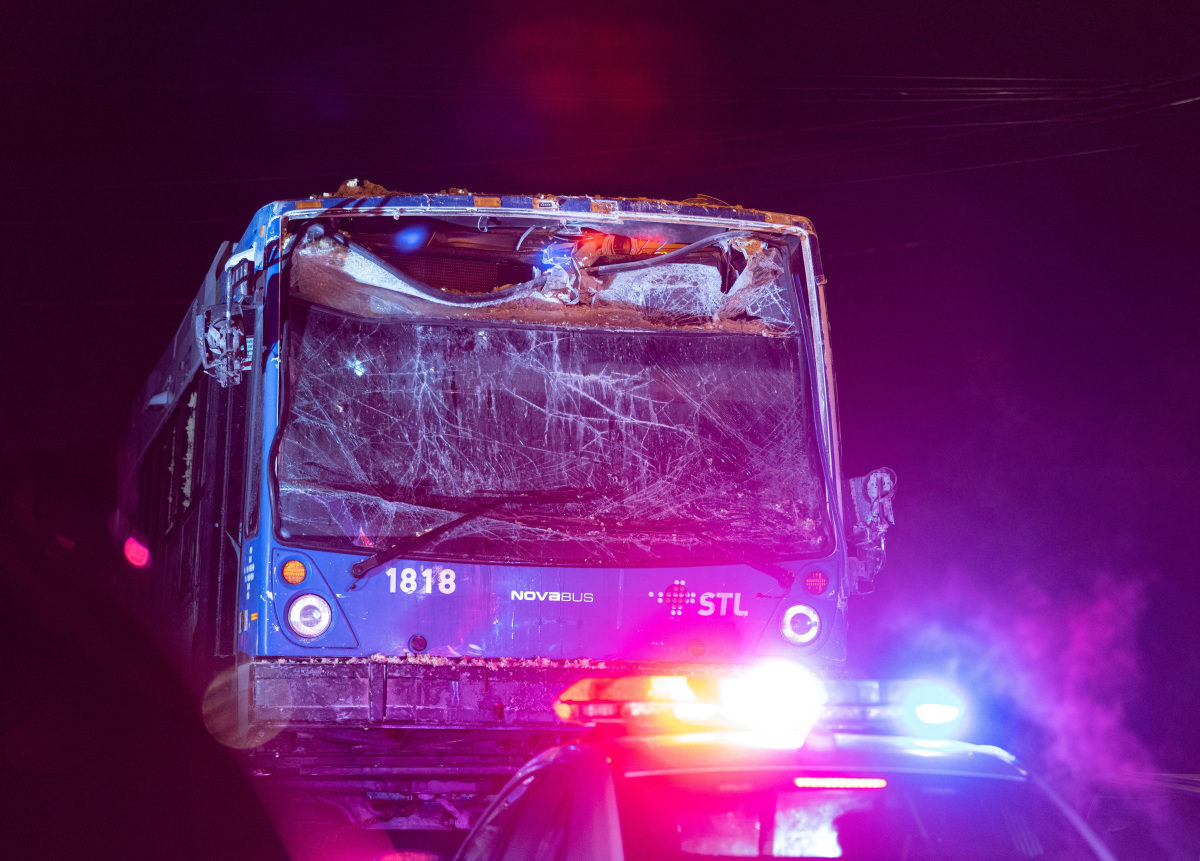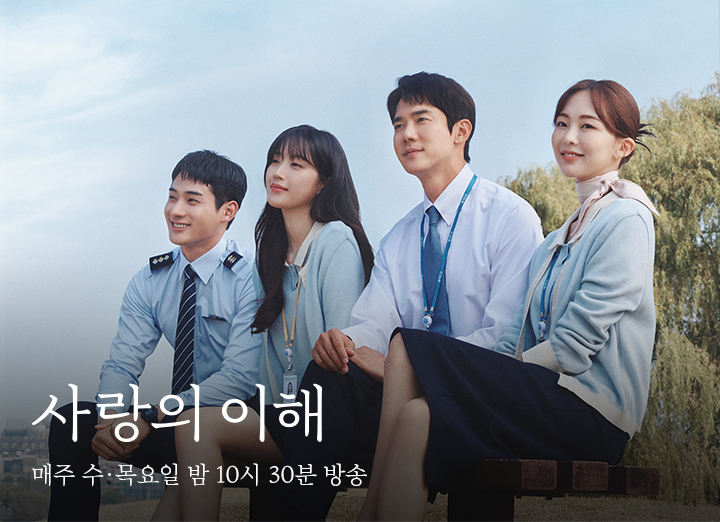AFP
The headline images were a triumph for all concerned: British and Belgian royal visits, a tank, a Paris dinner and a family photo with 27 applauding EU leaders.
But behind the scenes the tour by Ukraine’s war leader, President Volodymyr Zelensky, of European capitals was as much improvised as stage-managed and it triggered diplomatic jealousies.
Ever since the Ukrainian leader visited Washington in December — his first trip outside Ukraine since the Russian invasion — European capitals have been jockeying to host him.
The United States is by far Ukraine’s biggest source of military aid but, taken together, the financial military and humanitarian support from European Union member states adds up to tens of billions of euros.
Despite the tight secrecy supposed to surround Zelensky’s movements, Brussels had been abuzz with rumours of a visit since Monday, when news of his trip was leaked.
So, when he landed in London on Wednesday in a Royal Air Force plane, it was a surprise.
The trip took on the trappings of a full state visit, with a moving Zelensky speech in the historic Westminster Hall in Britain’s capital, and an audience with King Charles, causing consternation in Paris.
President Emmanuel Macron and Germany’s Chancellor Scholz had been briefed Monday that European Council president Charles Michel had invited Zelensky to Thursday’s EU summit in Brussels.
The Ukrainian leader’s movements, however, were not set in stone. It was not clear until the last minute that he would be able to spare time away from Kyiv with Russian attacks intensifying.
Already on Tuesday evening, Macron’s office had begun to mull hosting Zelensky on the eve of the Thursday summit, according to French and Ukrainian diplomats.
But the plan only took form, the Ukrainian source said, on Wednesday morning — when, unbeknownst to Paris, Zelensky was on his way to London.
And it was only in the early evening, that the Elysee Palace announced that Macron and Scholz would dine with Zelensky — at a time when Brussels was preparing to receive him.
By this point, Zelensky had met British Prime Minister Rishi Sunak in front of a Challenger tank, inspected Ukrainian troops training in Britain and received an ovation from MPs.
He would go on to a royal reception, before boarding a British jet for Paris, where he was welcomed by an honour guard and the defence minister en route for the Elysee.
He had also received an offer for Britain to train Ukrainian pilots — and assurances that London would seriously consider a request to donate advanced fighter jets.
Some observers interpreted the staging as showing Zelensky had preferred his British ally over the French one, or even that Brexit had given London more diplomatic freedom to manoeuvre.
Anonymous diplomats briefed The Wall Street Journal that Macron’s office had never sent a formal invitation to Zelensky, but Ukrainian diplomats denied this.
“It’s not true at all,” one said, insisting that Macron and Zelensky had both wanted, and sought, a Paris meeting as part of the trip.
After the event, French diplomats sniffed that, while Britain had made a grandiose display of its support, Macron’s more discreet dinner with Scholz had been intended to demonstrate EU unity.
If that was the message, however, it didn’t get through to Brussels — or Rome — in time.
Brussels-based diplomats learned of the Paris leg from journalists and, arriving at Thursday’s summit and Italian premier Giorgia Meloni made clear her irritation at being left out.
Meloni was asked if a trip by French and German ministers — without EU colleagues — earlier this week to Washington to discuss US green subsidies was inappropriate.
“Frankly, the invitation to Zelensky yesterday seemed more inappropriate to me, because I think our strength in this fight is unity,” she told reporters.
“I understand the questions of internal politics, the fact of privileging domestic public opinion,” she said.
“But there are moments where privileging domestic public opinion risks being detrimental to the cause, and this seems to me one of those cases.”
Both countries are in a four-country dialogue with Russia and Ukraine called the Minsk format, which is effectively dead since Moscow’s invasion.
All that diplomatic elbowing and bitterness swirled in the background, even as Macron tweeted a photo of the 27 EU leaders standing shoulder-to-shoulder with Zelensky, alongside the words: “The European family.”
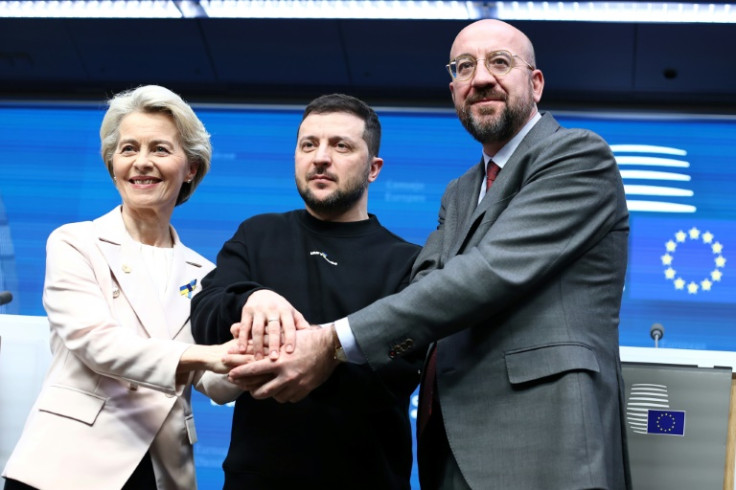
AFP
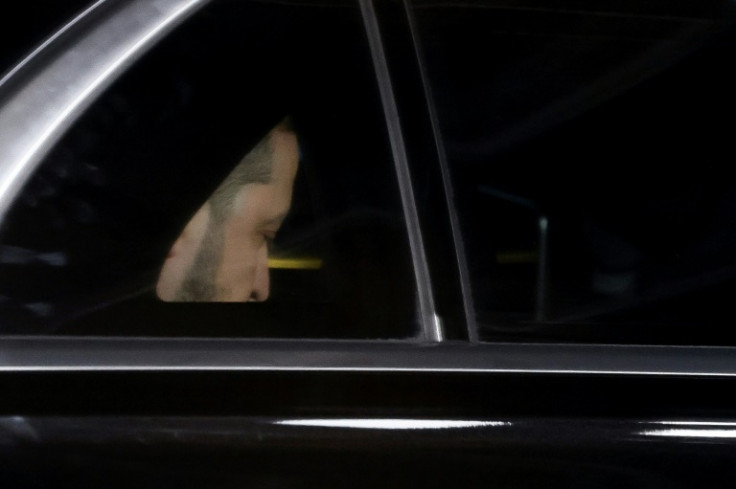
AFP

